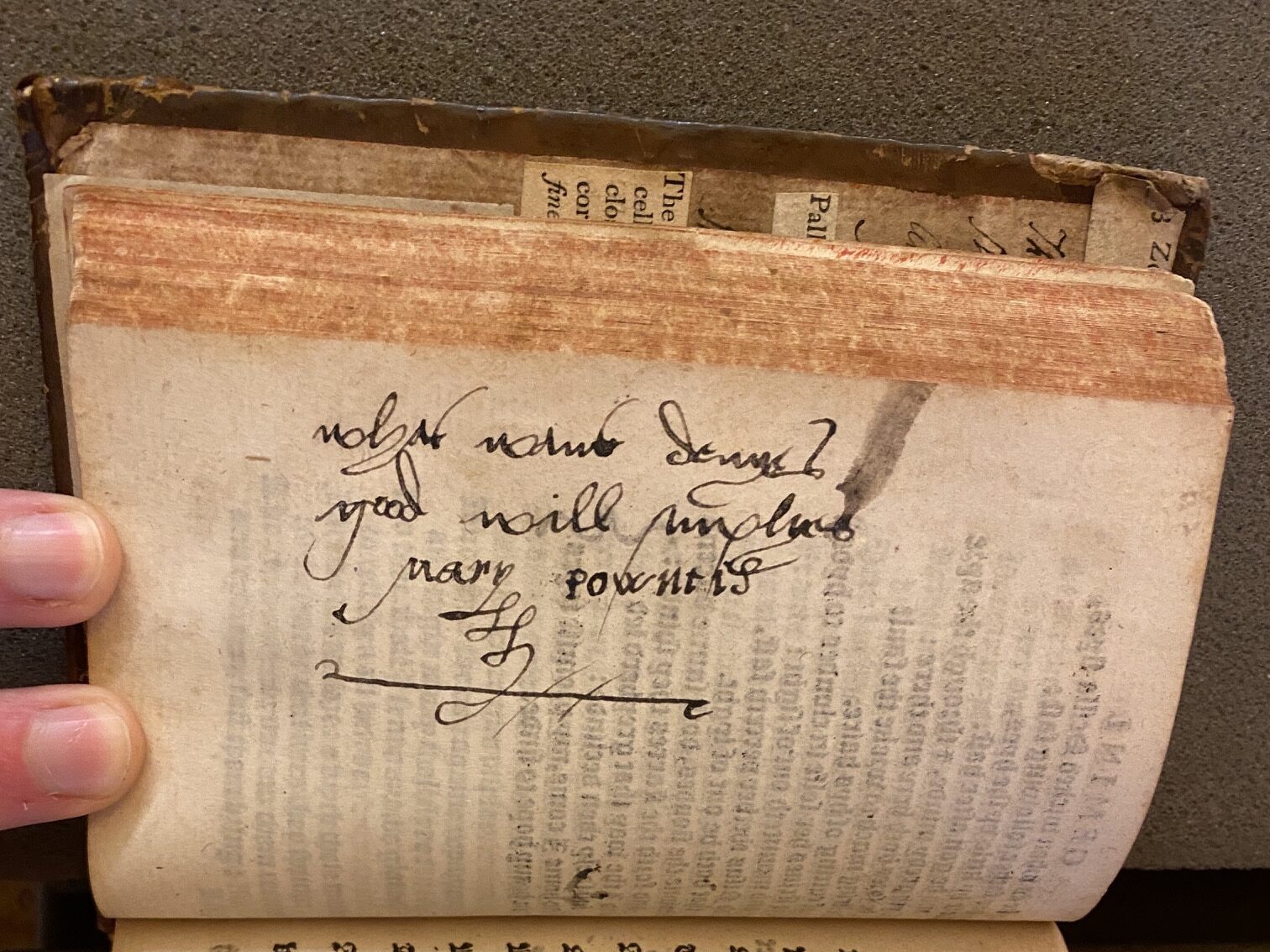Douce P 584, The zodiake of life
Douce P 584 in the Bodleian Library, Oxford, contains The zodiake of life, a translation from the original Latin of Marcello Palingenio Stellato. The text is divided into twelve books for the twelve signs of the zodiac. Each offers moral precepts, and warnings, to the reader on how to live their lives well.
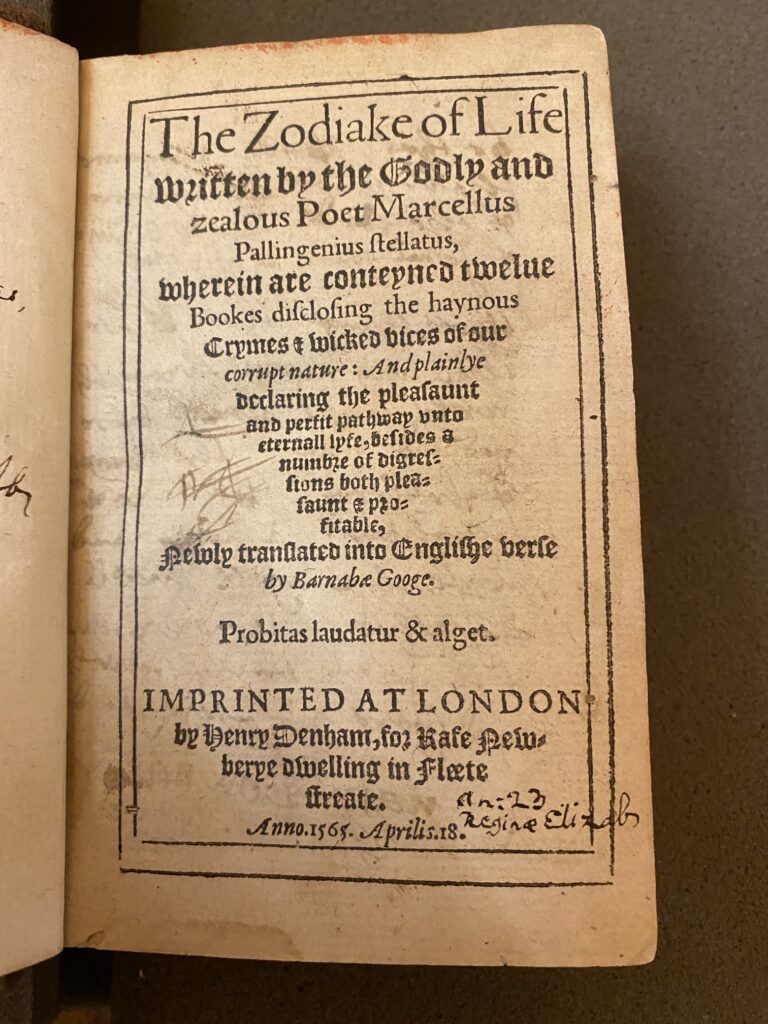
(fig. 1, t.p.)
But this copy of Zodiake is unique. It contains extensive annotations by Mary Powntis. She writes a long, signed note on the verso of the title page in a hand with secretary forms (fig. 2). The note quotes from Ecclesiasticus, in the Apocrypha (this book is also known as Sirach, or the Wisdom of Jesus the Son of Sirach). Her use and knowledge of the Apocrypha suggests a wide biblical and parabiblical reading.
At first, she cites Ecclesiasticus 28:1, writing (in modernised form):
“he that hath vengeance shall find vengeance of the Lord, the 28 of Jesus Son of Sirach”
She then turns to chapter 25, writing (again modernised):
“three things there are that my spirit[?] favoureth which be also allowed before god and man: the vows of brethren, the love of neighbours, a man and wife that agree well together; the 25 chap[ter] of Jesus son of Sirach.”

fig. 2, t.p. verso)
These citations reflect the kind of moral warnings and precepts that the text of Zodiake offered. But Mary Powntis here continues the work of the text and its author by manually adding other maxims she found apt. The volume becomes a living repository of moral guidance.
She adds another choice quotation on sig. G8v, where she writes ‘what want denies, good will supplies. Mary Powntis’. Again, this is advice on how to live and what to value.
Perhaps even more striking though, is the way that Mary Powntis annotates the text itself. While it is very frequent for men to underline and annotate their texts, often summarising, citing other texts, or cross-referencing in the margins, it is rare for women to do so. It is unheard of for women to use manicules, hand-shaped symbols used like modern-day arrows—though this is a frequent practice for men. Mary Powntis, though, does all of these things. We see an example on sig. N7r (fol. 104, fig. 3):
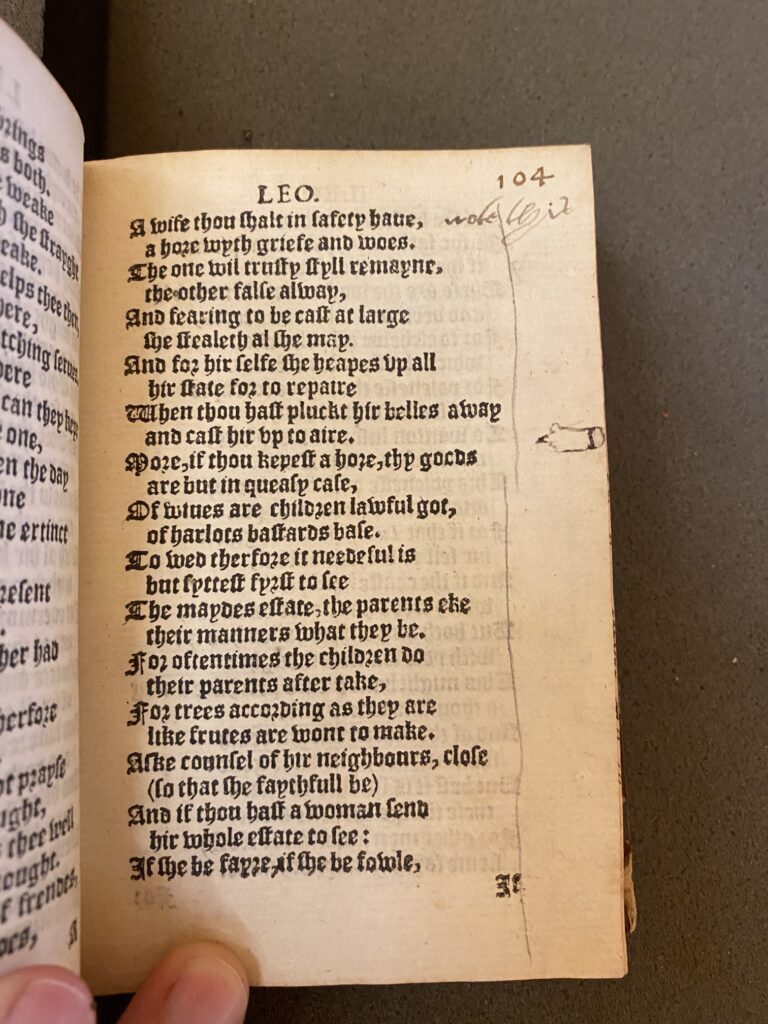
(fig. 3, sig. N7r)
Here the same hand we saw with the Ecclesiasticus citations returns to write ‘note this’, to mark the page out with a line and to draw a manicule in the right margin.
The tendency to write ‘note this’ is frequent in the text. At other times Mary Powntis writes a short comment, such as the summarising note ‘a firm friend’ we find in the margins of sig. K6v. Moreover, and as you can see in the image above, Mary Powntis foliates the volume on the top right of each recto.
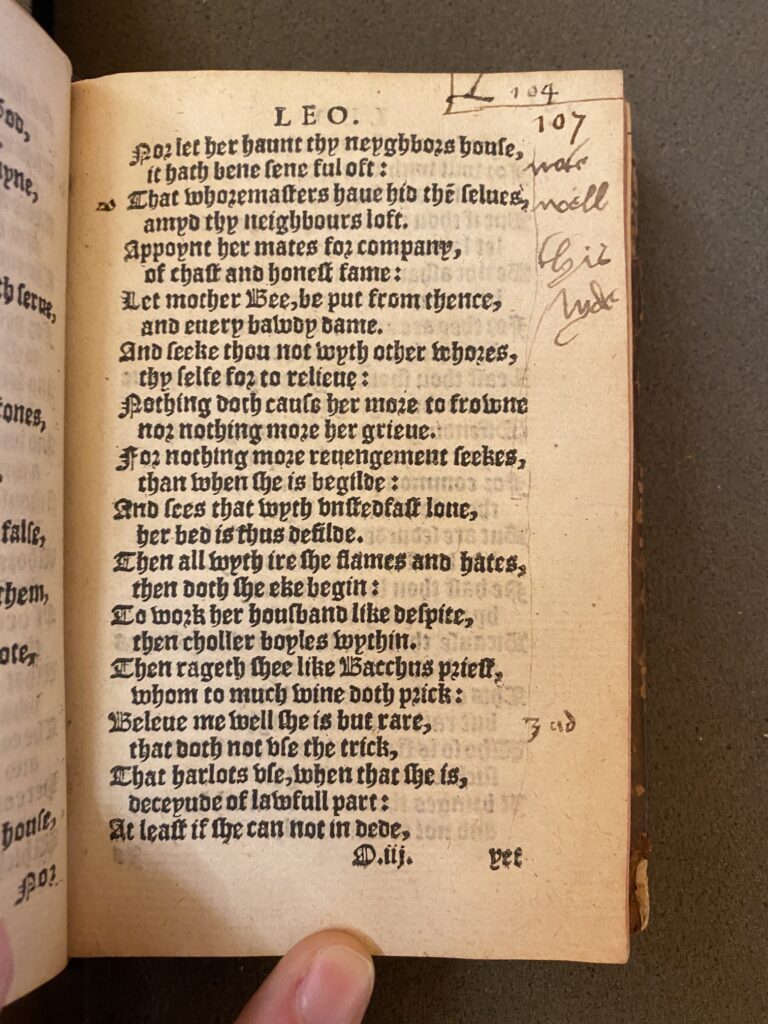
(fig. 4, sig. O3r)
On sig. O3r, she writes ‘Note well this syde’, again very much in the style of male humanistic annotators (fig. 4)
A striking annotation occurs on sig. O1r (fol. 105r). That page contains is a passage about how to treat your erring wife, including on the subsequent page a description of how to administer corporal punishment. Alongside the beginning of this passage, a hand—probably Mary Powntis’s—writes: ‘beware [xxx] be not too hasty in thumping’ (fig. 5).

(fig. 5, sig. O1r)
Finally, on sig. T8r (fol. 152r), we find another longer note from Mary Powntis, this time in her italic hand (fig. 6). It is rare to find annotators switching hands in this way; it could perhaps suggest the annotations were done at different times, or it could be an attempt at ornamentation.
In any case, here Mary Powntis writes that
‘All worldly joys are vague and death is most certain, Mary Powntis desolate’
‘Christ is to me life and death is to me advantage, Mary Powntis’
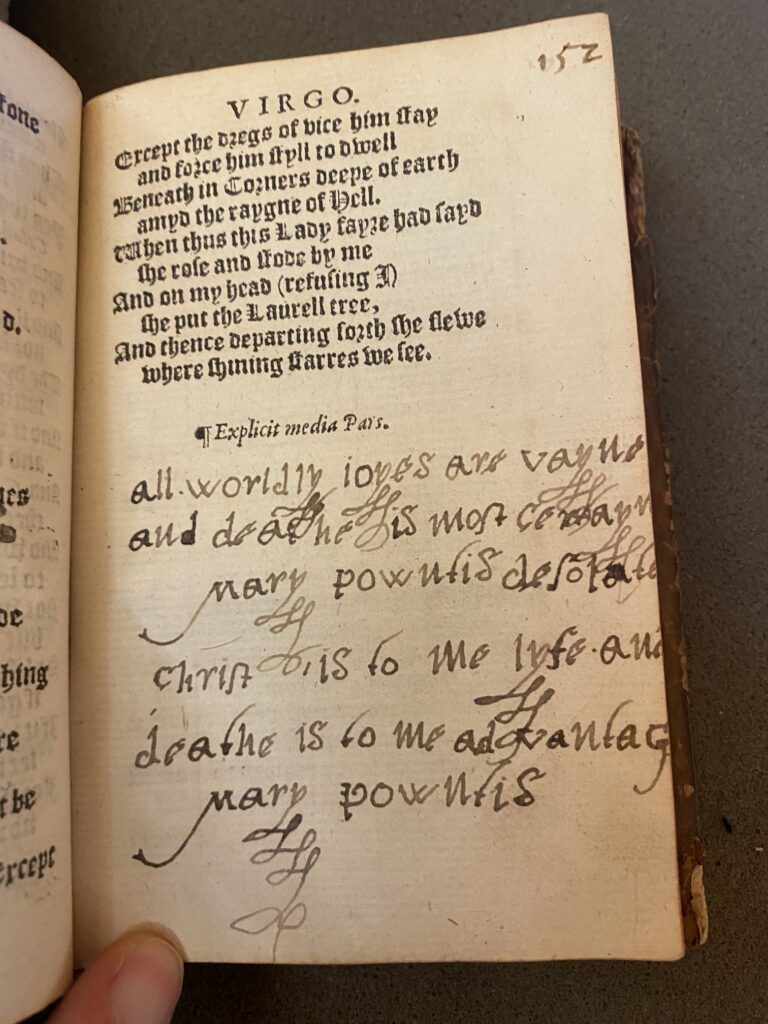
(fig. 6, sig. T8r)
Again this annotation shows that, for Mary Powntis, the most important precepts are divine. Her marginal practice is one of active Christian devotion, as we might expect for an educated woman reader and writer at this time. Less expected, though, is the way that devotion makes use of humanistic practices of annotation critics have tended to associate with male readers. Douce P 584 offers valuable evidence about the variety of women’s readerly and writerly activities in seventeenth-century England.

Jake Arthur
Dr. Jake Arthur is a post-award member of the University of Oxford. His doctoral thesis, supported by the Clarendon Fund, is entitled ‘”The stuffe not ours”: the work of derivation in women’s writing’; it examines early modern women’s work in translation and paraphrase and seeks to reclaim the expressive and intellectual possibilities of ‘derivative’ works. He is co-editor on the Palgrave Encyclopedia of Early Modern Women’s Writing, with Sarah C. E. Ross. He has recently published on early modern poets Anne Lock and Katherine Philips, and on translator Margaret Tyler. He works as a researcher on the ARC-funded project Marginalia and the Early Modern Woman Writer, 1530-1660, and the ARC-Marsden Grant funded project, ‘Woe is me:’ Women and Complaint in the English Renaissance.

